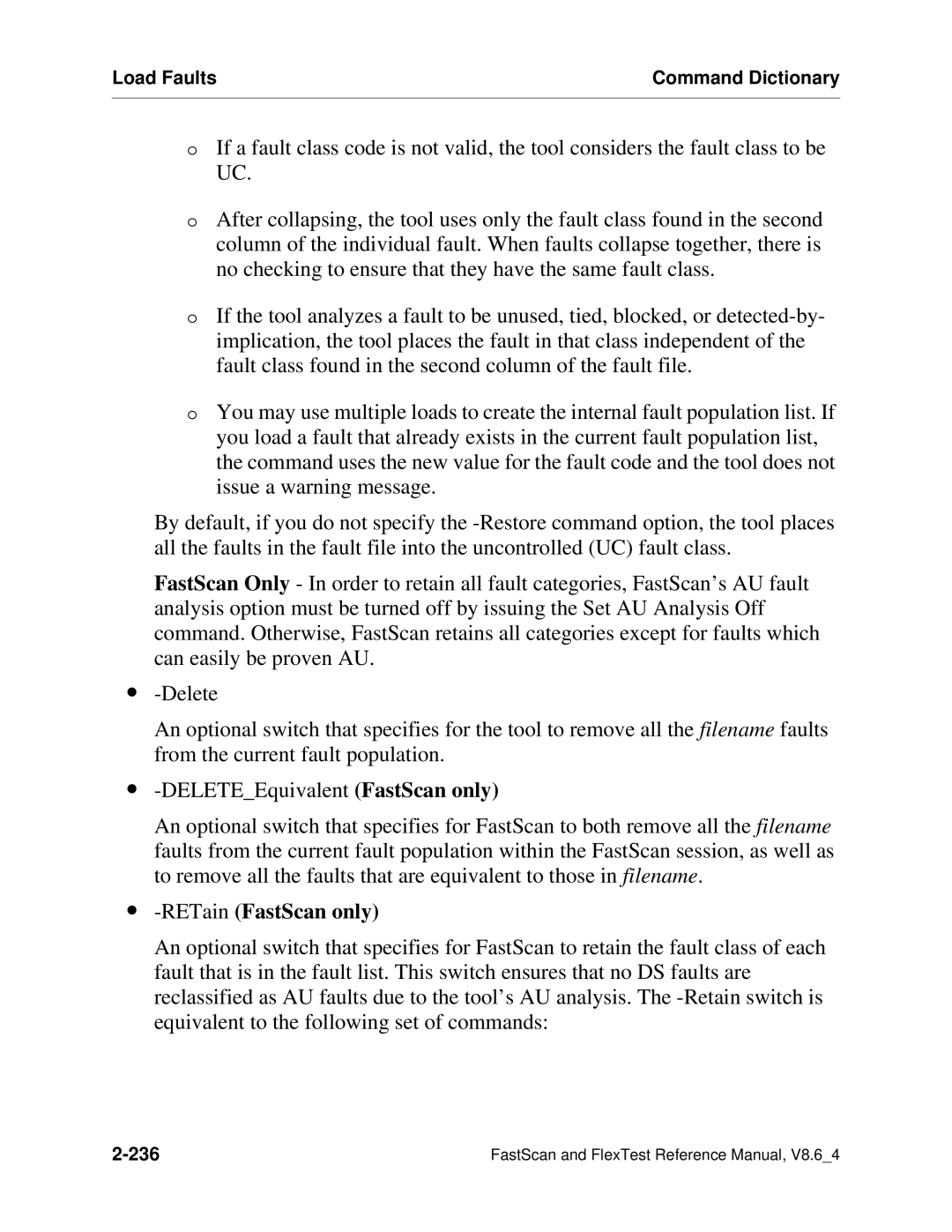Load Faults | Command Dictionary |
|
|
oIf a fault class code is not valid, the tool considers the fault class to be UC.
oAfter collapsing, the tool uses only the fault class found in the second column of the individual fault. When faults collapse together, there is no checking to ensure that they have the same fault class.
oIf the tool analyzes a fault to be unused, tied, blocked, or
oYou may use multiple loads to create the internal fault population list. If you load a fault that already exists in the current fault population list, the command uses the new value for the fault code and the tool does not issue a warning message.
By default, if you do not specify the
FastScan Only - In order to retain all fault categories, FastScan’s AU fault analysis option must be turned off by issuing the Set AU Analysis Off command. Otherwise, FastScan retains all categories except for faults which can easily be proven AU.
∙
An optional switch that specifies for the tool to remove all the filename faults from the current fault population.
∙
An optional switch that specifies for FastScan to both remove all the filename faults from the current fault population within the FastScan session, as well as to remove all the faults that are equivalent to those in filename.
∙-RETain (FastScan only)
An optional switch that specifies for FastScan to retain the fault class of each fault that is in the fault list. This switch ensures that no DS faults are reclassified as AU faults due to the tool’s AU analysis. The
FastScan and FlexTest Reference Manual, V8.6_4 |
